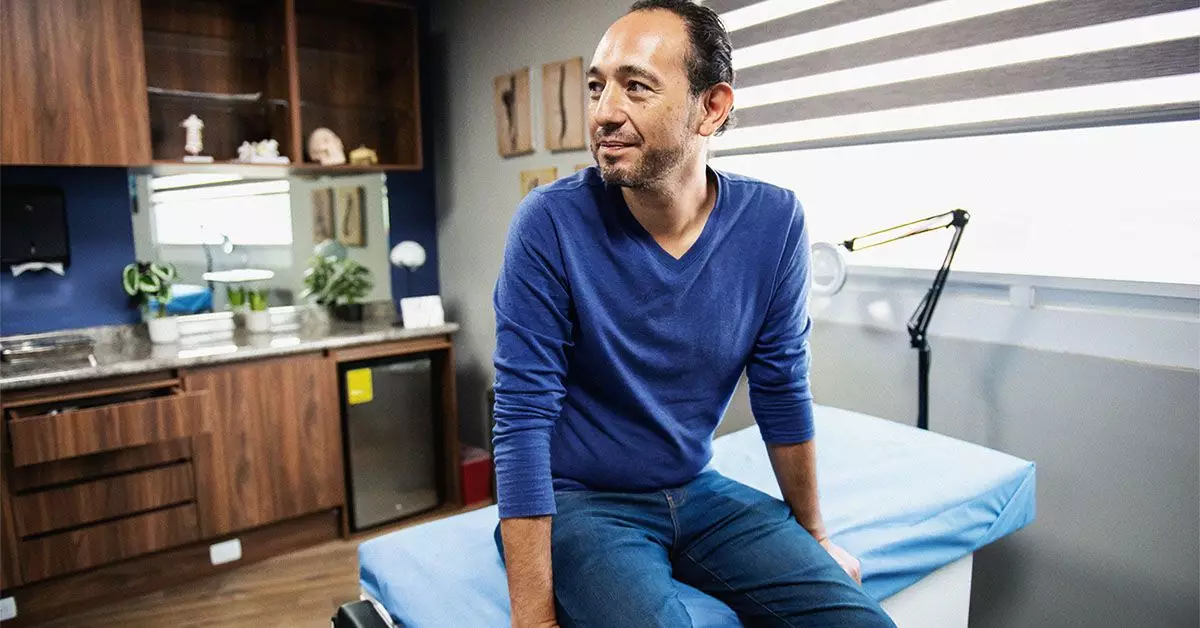The intricate dynamics between testosterone levels and prostate cancer have long been a subject of intense study among medical professionals. Testosterone, a key androgen hormone, has been implicated in the growth of prostate cancer cells, leading to the implementation of hormone therapy as a primary treatment pathway. As we delve into the nuances of this relationship, it is essential to address concerns regarding testosterone replacement therapy, especially for those with low testosterone levels, and whether such treatments heighten the risk of developing or reoccurring prostate cancer.
Understanding Testosterone and Its Role in Prostate Cancer
Testosterone plays a pivotal role in promoting the growth of prostate cells, both normal and cancerous. It operates by binding to specific proteins that regulate gene expression involved in cellular proliferation. Another androgen, dihydrotestosterone (DHT), has also been shown to contribute to the growth of prostate cancer cells. Consequently, medical practitioners often aim to mitigate androgen levels during prostate cancer treatment to impede cancer progression.
The primary mechanism of hormone therapy, or androgen deprivation therapy, involves reducing testosterone’s influence on prostate cells. This can be accomplished through pharmacological interventions or surgical procedures aimed at decreasing testosterone production in the body. Key strategies include the use of luteinizing hormone-releasing hormone (LHRH) agonists or antagonists, which significantly lower androgen levels, and the option of surgical castration or orchiectomy, all designed to hinder the hormonal fuel that facilitates cancer growth.
Mechanisms of Hormone Therapy
Hormone therapy manifests through several approaches to effectively manage prostate cancer. These can be broadly categorized into three methodologies:
1. **Reducing Androgen Production**: LHRH agonists and antagonists are commonly utilized to curb testosterone synthesis directly from the testes. Alternatively, drugs like abiraterone and ketoconazole target androgen production from other sources within the body.
2. **Blocking Androgen Function**: Anti-androgens are another class of drugs that prevent androgens from interacting with androgen receptors in prostate cells. This blockade mitigates the stimulatory effect of testosterone and DHT on the cancer cells.
3. **Adjuvant Use with Other Treatments**: Hormone therapy is often employed in tandem with other treatment modalities such as radiation therapy. For instance, hormone therapy can reduce tumor size before radiation, enhancing treatment efficacy, especially in high-risk patients or those who cannot undergo surgery.
However, a challenge exists: many prostate cancer cells may eventually develop resistance to hormone therapy. In those cases, oncologists often explore alternative therapies but frequently maintain hormone therapy to manage androgen levels.
Given the role of testosterone in fueling prostate cancer, concern has emerged surrounding testosterone replacement therapy, particularly in patients with previously diagnosed prostate cancer or those at elevated risk. Current research indicates that testosterone replacement may not be directly linked to an increased risk of prostate cancer recurrence. In fact, it can provide significant benefits to men suffering from hypogonadism—a condition characterized by abnormally low testosterone levels, which may arise as a side effect of cancer treatments like chemotherapy or hormone therapy.
Studies do not support the notion that testosterone therapy triggers new instances of prostate cancer; rather, the potential risk seems to lie more in the attributes of the existing cancer, such as remaining undetected cancer cells or advanced disease prior to intervention.
The optimal timing for initiating hormone therapy remains a contentious topic among healthcare providers. Some experts advocate for an early start in hormone deprivation treatment, citing studies that hint at improved outcomes for patients. However, others caution that initiating hormone therapy prematurely could lead to increased side effects and the danger of developing resistance in cancer cells.
Moreover, for men whose prostate cancer is classified as very low risk, a ‘watchful waiting’ or active surveillance approach is often recommended to avoid unnecessary side effects from hormone therapy.
While testosterone is integral to the propagation of prostate cancer, the approach to managing its levels through hormone therapy is multifaceted. With various methods to decrease androgen activity and the advent of testosterone replacement for those with deficiencies, it is vital for patients to consult with their healthcare providers to weigh the benefits and potential risks of treatment options. Ongoing research is critical to further clarify the relationship between testosterone management and prostate cancer outcomes, enabling customized treatment strategies that best cater to individual health needs and cancer profiles.

